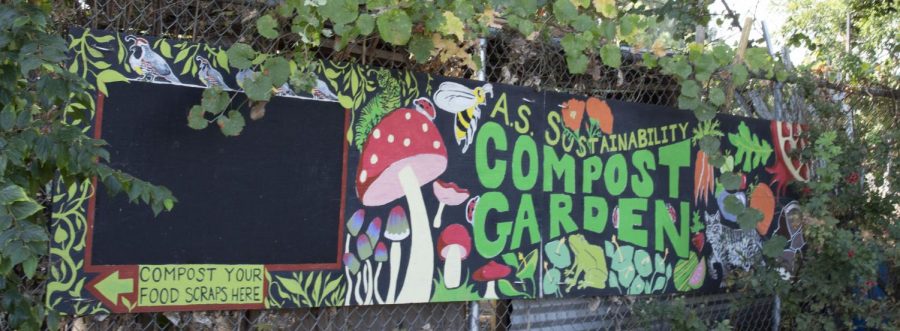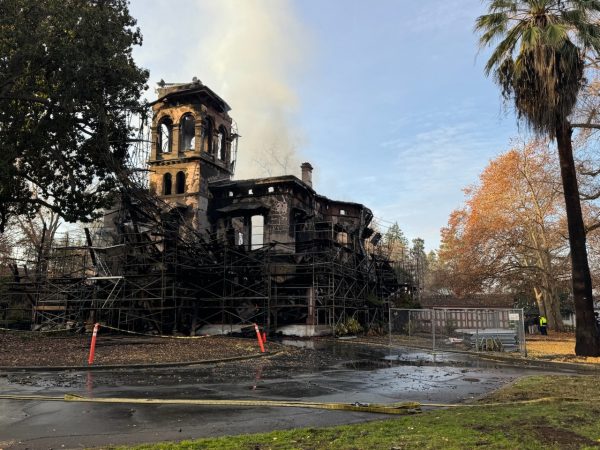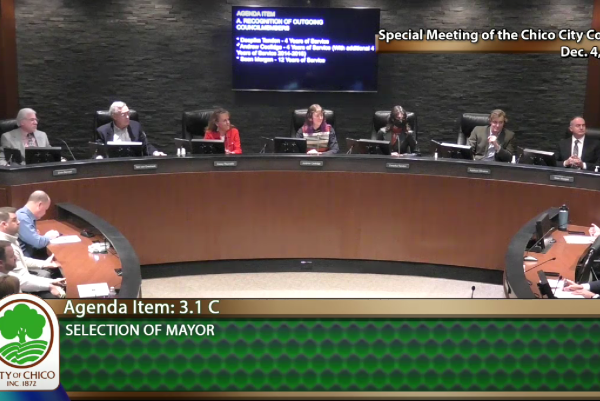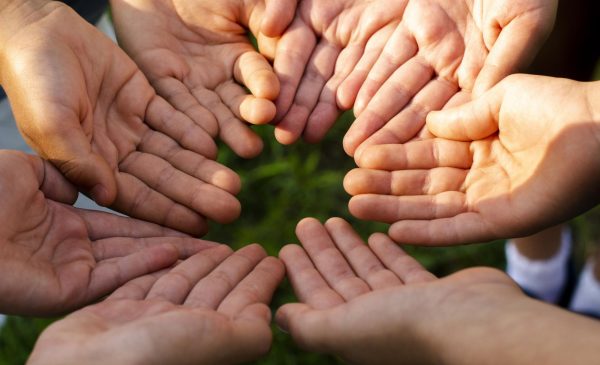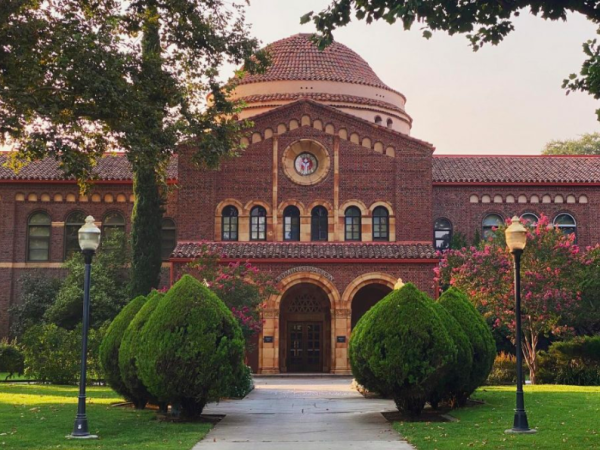Composting Chico into a better place
The Chico State Associated Students Sustainability Program reopened its community compost garden on Sept. 10. It’s located between the tennis courts and railroad tracks behind Yolo Hall in a small fenced in lot with overgrown brush. Composting items can be dropped off at the small window in the fence anytime of the day.
Sam Treanor, a senior and environmental science major with a focus in sustainable energy and earth resources, is the garden and compost coordinator. He’s in the garden a few hours per day.
Each year, the new garden and compost coordinator can start their own project. Treanor is cleaning up the garden to add perennials and native plants with advice from some local botanists.
“There needs to be a plan before we go in and tear it apart,” Treanor said.
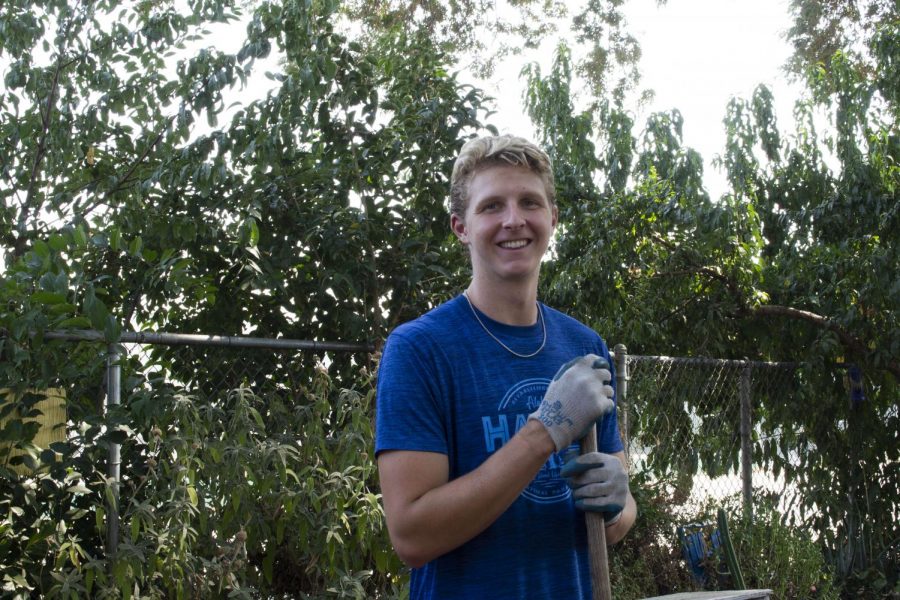
The compost garden has been around for roughly 20 years. Nani Teves, AS Sustainability program coordinator and environmental science alumna, was unaware of when it opened, but mentioned it wasn’t there in the ’90s and appeared sometime in the early 2000s.
Composting occurs when organic items are left to decay and break down into a sustainable granule sized substrate. Teves acknowledged composting is important because it helps produce food for people, wildlife and soil.
Treanor plans to clean up the overgrown brush with the help of four newly recruited interns, and seek advice from Scott Grist, organic vegetable garden coordinator at the University Farm, about what vegetables would be most suitable to grow.
Grist said the University Farm practices a closed-loop system and tries to serve as an example.
“All the vegetables we have that are ugly or half rotten, we take those and we feed the worms in the compost,” Grist said. “They create the worm castings and we can put it back into the soil so it’s a closed-loop system. There’s no waste.”
Each intern has to choose a crop, preferably a herb they will manage throughout the semester. Treanor said the goal is to grow enough crop for a small barbeque or giveaway.
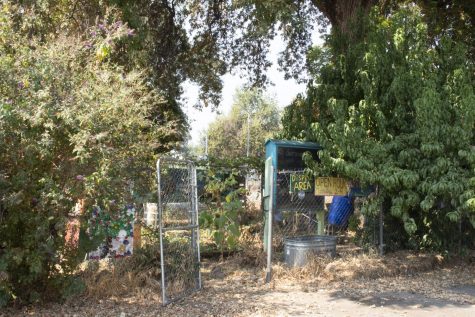
“Nobody was managing the [garden] during the past few semesters due to no in-person classes,” Treanor said. “The gates were locked and nobody was here, so everything grew over.”
Items accepted: coffee grounds and filters, tea bags, fruit, vegetables, grains, cereal, eggshells, nutshells, shredded newspaper, yard trimmings, grass clippings, houseplants, hay, straw, leaves, sawdust, woodchips, cotton, wool rags, hair, fur and fireplace ashes.
Newspapers are accepted because they’re made out of wood pulp and recycled material, which makes it easier to break down compared to other paper products.
Items not Accepted: dairy, meat, paper products, cardboard and Bioplastics. This includes brown paper bags.
The distinction between accepted and not accepted items are determined by research and past compost piles. The compost piles are intended to be used throughout the semester, so adding items like cardboard and paper products would prolong this process. There’s old compost piles from past semesters with cardboard and paper products that haven’t been able to be broken down even when sitting outside for a few months.
“These piles are supposed to only last one semester,” Treanor said. “So we’re looking for [items] that are not long-lasting.”
Although items can be decomposable, others can easily contaminate the compost pile if there’s any blood, grease, random chemicals or cooking oil. Keeping categories broad help maintain the integrity of the organic substrate.
The chances of the compost pile becoming contaminated is slim.
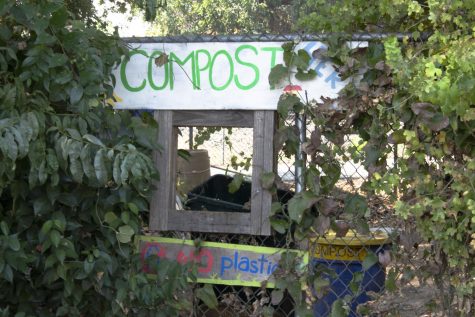
“I sort out the [stuff] before it goes into the pile,” Treanor said.
The AS Compost Garden is open for volunteer hours on Wednesdays from 11 a.m. to 1 p.m. and will be facilitated by Treanor. Anyone can come visit and learn about composting or get their hands dirty and plant something.
Melvin Bui can be reached at [email protected] or @melvinbuii on Twitter.



